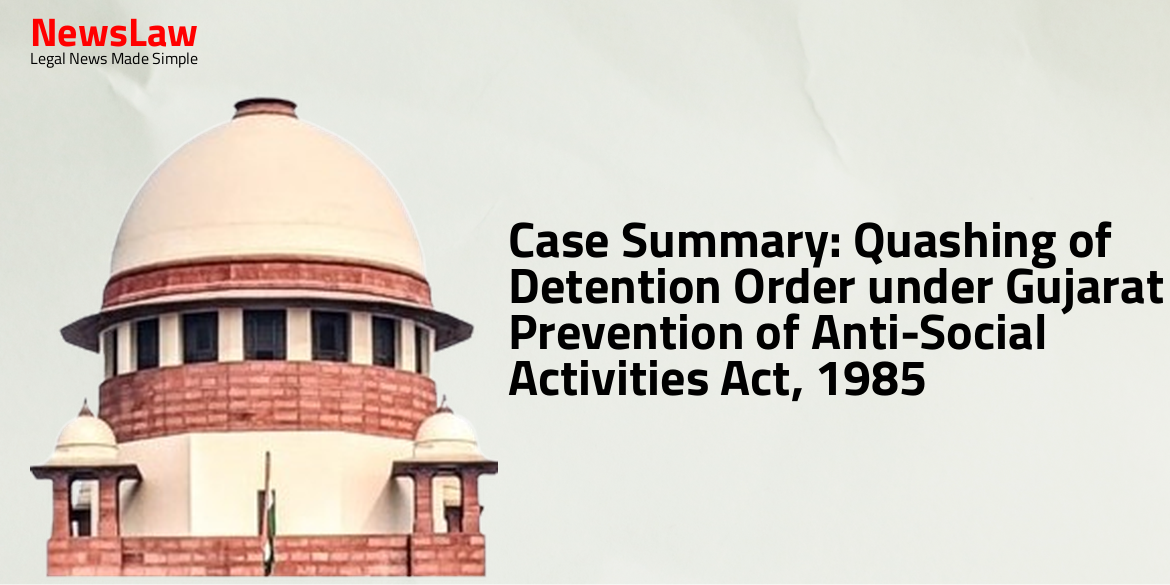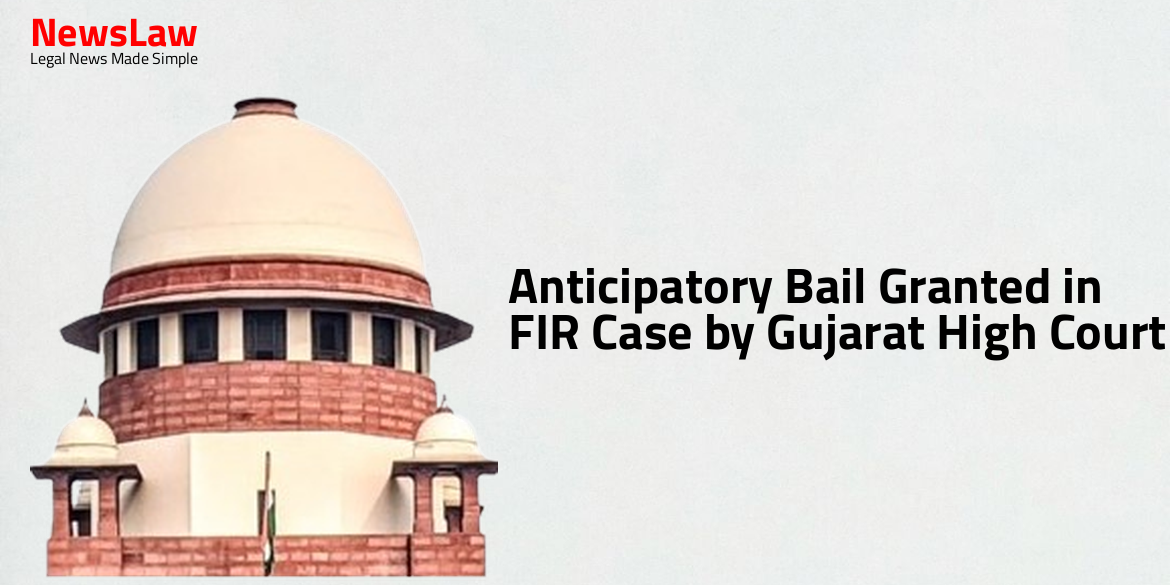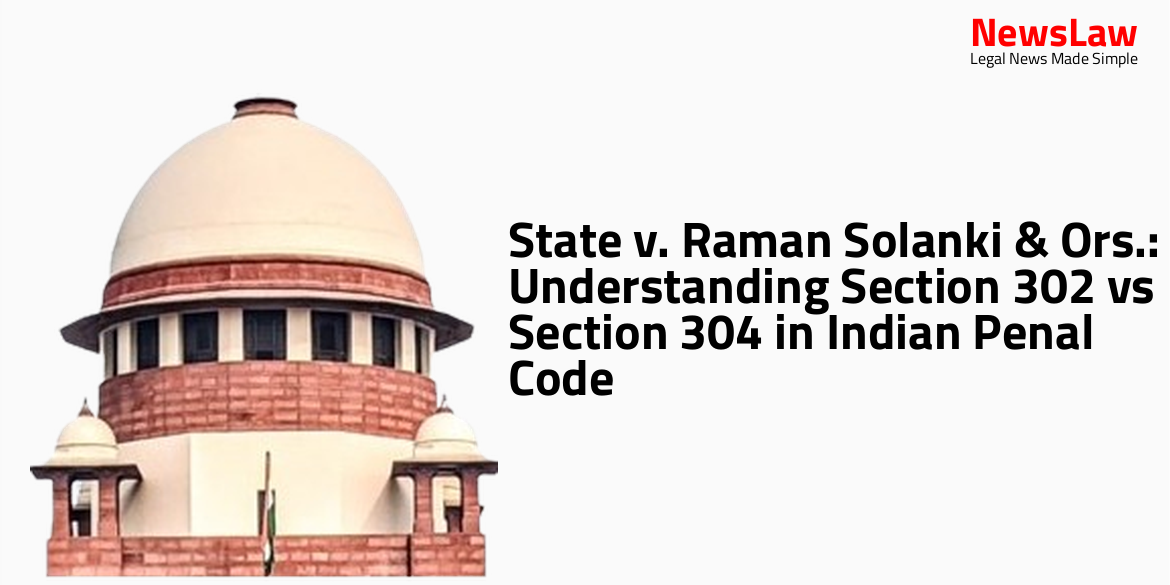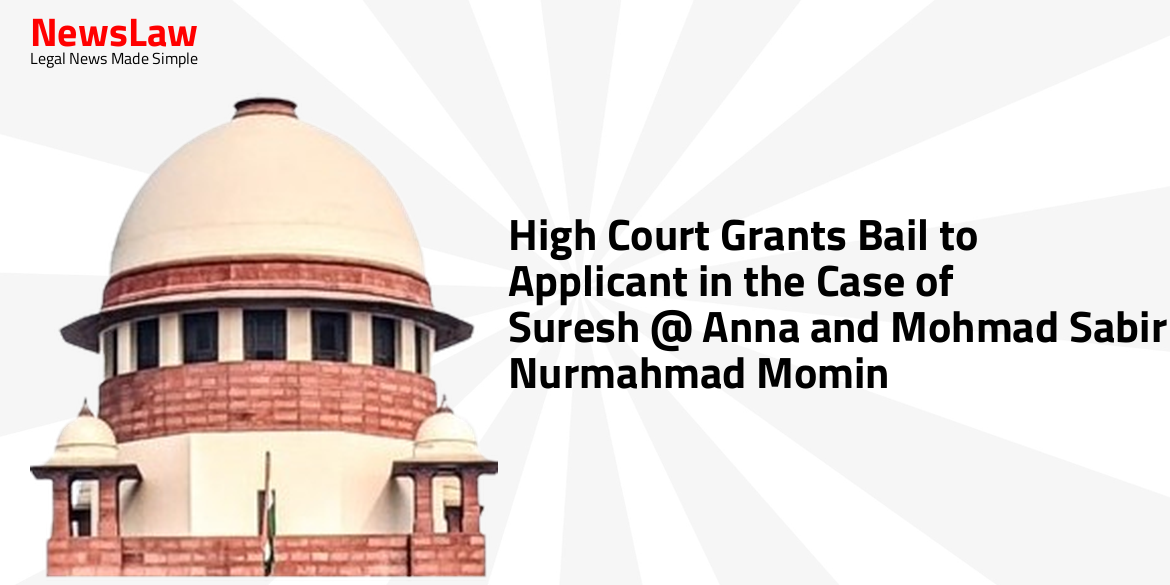The present case involves the quashing of a detention order under the Gujarat Prevention of Anti-Social Activities Act, 1985. The petitioner challenged the order, arguing that the activities in question did not disturb public order. After careful consideration, the Gujarat High Court found the detention order lacking in legal basis and quashed it, emphasizing the importance of safeguarding personal liberty and ensuring that preventive detention is used judiciously. This case sets an important precedent regarding the proper application of preventive detention laws in cases where public order is not significantly impacted.
Facts
- The present petition challenges the order of detention dated 23.12.2023 passed by the detaining authority under the Gujarat Prevention of Anti-Social Activities Act, 1985.
- The detaining authority invoked powers under Section 3(1) of the Act to detain the petitioner, who is defined as a detenue under Section 2(c) of the Act.
Arguments
- The advocate for the petitioner argues that the activities of the petitioner, related to criminal cases, did not disturb the social fabric or pose a threat to the normal life of society.
- The advocate points out that the petitioner is already on bail for all the offenses, indicating no immediate risk to public order.
- It is emphasized that apart from witness statements and FIR registration, there is no substantial evidence linking the petitioner’s actions to a breach of public order.
- The advocate contends that the detention order hinges solely on the FIRs filed, which do not categorize the petitioner’s actions as a threat under the relevant law.
- Lastly, it is argued that the alleged illegal activities do not pertain to public order but rather to law and order, and hence do not warrant detention under the Act.
- The detaining authority’s subjective satisfaction is found to be not legal or in accordance with law.
- Offences alleged in the FIRs do not impact public order as required under the Act.
- Other relevant penal laws are deemed sufficient to address the situation.
- Allegations against the petitioner-detenue are not pertinent to bring them under Section 2(c) of the Act.
- The AGP for the respondent-State supports the detention order, stating that sufficient materials and evidences were found during investigation.
- The detenue’s activities fit the definition under Section 2(c) of the Act, based on the materials provided.
- The detaining authority’s order is deemed appropriate and deserving of being upheld by the court.
Analysis
- Detention orders must be in line with Articles 21 and 22 of the Constitution of India.
- Detention under Rule 30(1)(b) should be to prevent subversion of public order, not for maintenance of law and order under ordinary circumstances.
- The detention of an individual must be based on them becoming a threat or menace to society, disturbing public order significantly.
- The reasons for detention must be clearly outlined and must show that the individual poses a grave risk to society.
- The offences committed by the individual should be dealt with under relevant laws, not preventive detention laws unless warranted.
- The detaining authority must apply their mind to all circumstances relevant to the individual’s detention.
- The detention order lacked reference to any application for cancellation of bail by the State authorities.
- Two FIRs against the detenu could be managed through the ordinary course of criminal law, without resorting to preventive detention laws.
- The case exemplifies a failure to consider material circumstances affecting the subjective satisfaction of the detaining authority.
- Preventive detention involves detaining a person without trial to prevent them from committing certain offenses.
- Detention cannot be a substitute for ordinary law and should not absolve investigating authorities of their duties.
- Preventive detention should not be used to keep a person in perpetual custody without trial.
- Personal liberty is supreme and can only be restricted when extremely necessary and the activities of the individual affect public order.
- The power of preventive detention should be exercised with caution and proper evaluation of facts to see if the detention is prejudicial to the interest and security of the state.
- Not every disorder meets the threshold of disturbing public order unless it affects the community at large.
- The distinction between ‘law and order’ and ‘public order’ has been clearly defined in various legal cases.
- The exceptional powers of preventive detention should not devolve into a draconian and arbitrary exercise of state authority.
- The powers of preventive detention are exceptional and must be exercised with great caution.
- Detention orders must be scrutinized carefully, especially when based on charges being tried by a criminal court.
- A disturbance to public order must affect the community at large to be considered a valid reason for preventive detention.
- Personal liberty under Article 21 is highly valued and must be protected at all costs.
- Detaining authorities must ensure that any detention aligns with the established legal procedures.
- Article 22 should be viewed as an exception to Article 21 and only be applied in rare and exceptional circumstances.
Decision
- Direct service permitted.
- Rule made absolute to allow the petition.
- Simplicitor registration of FIRs alone cannot be linked to breach of public order.
- No relevant material for invoking power under Section 3(1) of the Act.
- Petition allowed, impugned order of detention quashed and set aside.
- Detenue to be set at liberty forthwith.
Case Title: TARBEZ ALIAS RAJU MUJAALDALAM SHEIKH THROUGH HIS MOTHER YASMINBANU MAEUHUDIAHM SHAIKH Vs. STATE OF GUJARAT
Case Number: R/SCA/741/2024



